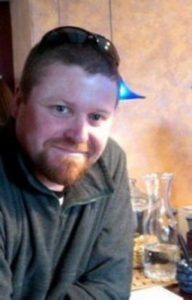 Have you ever wanted to pick the brains of a top author? An author with a proven track record of success? An author who has managed to scale the mountain– and has been consistently at the top? This is your opportunity. This interview with Seth Nation will be revealing, entertaining, and will fire your desire to read his books. His first Western “The Devil’s Brand” has been a constant seller, with great reviews… and to prove how good it is… It is available as a #free download from Amazon. This giveaway will only last for a limited time… so…. read this interview, download the book and make your weekend a brighter one! You won’t regret it!
Have you ever wanted to pick the brains of a top author? An author with a proven track record of success? An author who has managed to scale the mountain– and has been consistently at the top? This is your opportunity. This interview with Seth Nation will be revealing, entertaining, and will fire your desire to read his books. His first Western “The Devil’s Brand” has been a constant seller, with great reviews… and to prove how good it is… It is available as a #free download from Amazon. This giveaway will only last for a limited time… so…. read this interview, download the book and make your weekend a brighter one! You won’t regret it!
What made you want to become a writer in the first place?
I really don’t think I have a reason, other than that I have always loved to write, whether it was song lyrics, poems, blogs or stories, I always enjoyed that form of expression. As I got older and the more I read, I decided I wanted to focus on it, not only as a hobby but to one day be really good at it. I enjoy feedback, good or bad. I really love to hear what people think.
What do you think caused Westerns to be so popular in the first place?
Because when it comes down to it, the Western is really a story of us. That time period was absolutely transformational in terms of our country progressing. Any person of any race or nationality can trace something back to that time period. It was also a time of great struggle, and that always leads to compelling stories. It was a time of adventure and the expansion of our country, again which provides compelling stories. Over the years with cinema and TV, it has been glamorized to an extent; but it was also a time of lawlessness, and that good vs. evil element is essential to any story. I know for people of my generation, we grew up on the tail end of Westerns being on TV quite a bit. The two generations before mine grew up on it almost exclusively. But we grew up in an era when we had family alive who could recount back to those times, so the stories were passed on. My great-grandfather was born in 1902. I knew him for almost 20 years. He was only one generation removed from that time period. I think a real challenge going forward will be to keep the newer generations enthralled by that time period because they don’t have those living examples around them. But as you can see by the popularity of old Western movies being remade, and Quentin Tarantino’s last two films, there is a massive audience still out there to whom to a good Western story appeals.
If you were a cowboy riding across America—would you take your horse, the stagecoach, or the train?
It would definitely not be by coach. Just thinking of the construction of them and the conditions of the road back then makes my back hurt. Talk about a bumpy ride. More than likely, I would have preferred the horse. I love the outdoors and being out beneath the stars. However, with that said, I do love trains, and for years my family would travel by train when we went on vacation. Trains back then did not provide the same comfort as they do today, but I can’t imagine if I were to live back then I wouldn’t want to travel by train if I could. I have actually tried to incorporate train travel in to some of my stories. Sometime this fall, I am taking a train trip to New Mexico, with the goal of writing a train sequence for a future story while riding the train to really get somewhat of a feel for the scene and to accurately describe the events. It should be a lot of fun.
If you could have been part of any major historical event of the West—what would it have been?
Well, it predates the Old West, but for me it would be the expedition of Lewis and Clark. At the time, it was one of the greatest explorations and adventures imaginable. I can only imagine seeing all of that country for the first time, unblemished, and the obstacles they faced. They were completely on their own and, in some regards, the failure or success of their expedition determined the fate of our country, especially in terms of expanding. I have always had a piece of me, particularly when I was a kid, that loved exploring and seeing things for the first time. A goal of mine in this life is to travel the same route they took, either on land or water, just to have a tiny piece of the same experience.
What would be your gun of choice?
It would be the Colt Peacemaker. I mean, that is the gun the won the west. My dad has a Henry rifle, so that is also a gun that I choose to include with my characters. But having two six-shooting pieces of iron hanging from your hips is about as good as it gets when I am writing. It reminds me of the Marty Robbins song, “Big Iron,” which is just one cool song in terms of romanticizing that time. It is also a song I have on my playlist that I like to listen to when writing. Helps set the mood.
How do you make a Western interesting to modern readers? What makes a younger reader want to read a Western?
You have to make it relevant to the times. I think of the traditional Westerns made in the ’50s and ’60s, and my kids are bored to death. But there are new movies coming out in the last few years that have done very well: True Grit, Tarantino’s films, The Revenant, now the Magnificent Seven is being remade. I think, seeing an actor of today playing these parts is good in keeping the genre alive. I will say one thing I have noticed, and I am as guilty of it as anyone, is there seems to be more descriptive violence. This is definitely a turnaround from the films and books of the ’50s; it also may be just because technology is better in terms of creating these scenes, but I think today’s generation looks on that time with different eyes. Finally, though, I think with any genre it comes down to just having a good story. A good story will always gravitate readers to it.
What has been your greatest inspiration?
Honestly, my greatest inspiration is just seeing readers enjoy my story. When I started doing this, I was just doing it as a hobby, almost a stress reliever. I have always been a guy with stories when in conversation with folks. But putting your story on paper then reading reviews and seeing ratings is inspiring. It definitely makes me want to continue writing not only for myself, but for the reader who enjoyed my story and took the time out of their day to leave a review, or message me, or tweet something. I appreciate that wholeheartedly. It also adds some pressure to not want to disappoint them.
Have you written any other books that are not published? Do you have ideas lying around that you may work on one day?
I have many. Most are in pieces and are in no way finished. I have a coming of age story set in the 1980s. I have a baseball book, a science fiction story as well as an apocalyptic story. All are great ideas, but right now my focus is on Westerns and building an audience that enjoy my stories. I have a lot of Westerns to write, so some of these will take a back seat for a while. As I am finishing the Rider series, I am also fleshing out ideas for a short story series—books running about 100 pages each that I can put out every other month.
What do you think about the e-Book revolution?
I love it. Technology is king. I love having a book at my fingertips on my Kindle that I can buy whenever I want with one click. With that said, nothing will ever beat the feel of an old book in your hands and the imagination that is created from it. I love old bookstores. They are full of old treasures.
How would you describe your writing style?
I’m a Nomad, all over the place, whether it is writing style or genres. Sometimes I can knock out 100 pages with just an outline; other times I will write a scene, and if I really like it, I’ll find a way to fit it in. What I am really passionate about is the naming of things, characters, towns, etc. I put a lot of time into the naming of things. For instance, Ethan Brody in the Devil’s Brand was the fifth name I came up with. I loved the other names, but they just didn’t fit.
Pen, typewriter or computer?
I am strictly a computer guy. I do have a small notepad that I have handy to jot ideas and things that come to me, but sad to say, writing long hand is not something I would enjoy.
Do you write alone or in public?
Mainly, I write alone in a space I have carved out in my home. It’s a good space and keeps me focused. Occasionally, on the weekends I like to go to the coffee shop downtown, and I will write some there as well.
Music or silence?
Interestingly, I enjoy both. If I am writing an action sequence and I already know what it is I want to write, I’ll have some music going in my headphones, and it helps me tremendously. If I am writing something that I had to research or it is critical dialogue, I like silence so I can focus on getting it correct.
When you are in full writing mode, do you have goals of a certain number of words a week or do you just as write when inspiration strikes?
If I set goals, to me it feels dictated, like I am forcing things to happen instead of letting them flow. I just try to make sure that at least every other day I am writing something. I have hundreds of scenes filed away for use one day that have resulted from this. For instance, I had 75% of the Devil’s Brand written and edited for over a year. But It was missing pieces. Instead of forcing it, I let it sit for a long time then re-read it with fresher eyes.
What tactics do you have when writing? Do you jump right in, or do you have to outline?
I have a basic chapter outline that I use as a guide, but mainly I jump in and see where it takes me. Sometimes I will type as much as possible for as long as I can, no matter if it is good or bad, then come back and sort out the good parts and edit it a bit. If I like it, I’ll use it.
What has your experience been like as an author?
It has been fantastic. Seeing friends old and new enjoying the book, hearing what people have to say. Reading reviews and seeing ratings. Connecting with other authors and readers on social media has been great. I love to hear what readers think. And I absolutely love the fact that people enjoy my story. It is a very soulful thing.
What have you put most of your effort into regarding writing?
Dialogue, and portraying the way people spoke back then in a real light that is also staying true to that timeframe, all the while being socially conscious of today’s readers. It’s a fine line to balance. Some people want the story told just like it would have been told 150 years ago. Others don’t care for some of the language used back then. It’s tricky. My goal is that while some of my stories are violent, I want any reader to feel comfortable reading the language.
What is your new book about?
It is Book #2 in my Rider Series. The title is still under construction. In Book #1, Ethan learned the man for whom he has been searching for years is still alive. He has some clues that are left for him. Book #2 will have two story lines: Ethan searching for Gideon Pratt, and Gideon preparing for Ethan. Along the way, there will be some new characters and definitely plenty of action and adventure. In fact, I hope to put a lot more action into this one.
Do your books have a lesson to be learned or a moral?
If they do, it’s not intentionally, I’ve never really been into that. What I want to do more than anything is just tell a good story. I want someone to read my stories and be entertained, let their mind wander into the story. To me, the best stories are always the ones where you are so engrossed in the story you can’t put it down, where you can see the scene unfolding in your mind as you are reading. My favorite stories are the ones that I either read in one sitting, or if it’s longer, put everything to the side and read religiously until I’m finished.
What is your favorite part of your new book?
I have some really interesting new characters. The first book focused almost solely on Ethan Brody, although the main villain in the background, Gideon Pratt, was only really in the beginning of the book. The next two books will feature a lot of Gideon Pratt, and right now he doesn’t have any compadres left, so he needs to recruit some because Ethan is coming with both barrels blazing looking for blood. I also have a gunfight sequence that takes place on a train that I am really enjoying writing.
If you were running the 100-yard dash with a new writer, what writing, publishing wisdom would you bestow upon him/her before you reached the 100 yards?
That it is a marathon not a sprint. Everything you do is another brick you lay in the foundation you are building. Do it right, not fast. Edit, edit, and edit. Then when you think you are done, edit it one more time. Finally, find someone you are comfortable with to publish your work. Find someone who believes in your stories and goals as much as you do. Converse with other writers, join a writing club, get as much information as you can. Be proud of your story.
Do your characters seem to hijack the story or do you feel like you have the reins of the story?
I guide my characters but they lead the story. I spend a lot of time creating characters so when I write their story I feel like they are telling me what is happening and I am just the messenger putting their story out there.
If you could spend time with a character from your book, who would it be? And what would you do during that day?
It would be Oliver Kingston Dukes. I’d like to beat him in a game of poker without him cheating or hustling me, then have a few good glasses of whiskey.
What is the toughest criticism given to you as an author?
I’ve only had one really negative review, and it had to do with editing. Things a spell checker won’t catch. There were a few I didn’t catch when the book first came out, and a reader pointed them out to me rather quickly. Needless to say, we had them fixed that day. Edit, Edit, edit….
What has been the best compliment?
One reader spoke of an action scene I wrote, saying he could “smell the gunpowder” as he read the scene. I really liked that. Mainly, it’s just been encouragement from family, friends and readers wanting to know when the next book is coming out and wanting to find out what happens to certain characters. I like the fact that people are engaged in the story. It makes the whole thing worthwhile.
What is something memorable you have heard from your readers/fans?
A couple of folks have called it the “best book they have read in a while,” or “can’t wait to see what’s next.” But the most memorable moment for this book was just talking to my mom after she purchased a copy. She had seen some early drafts, and I just loved talking to her about it and getting her opinion and feedback. We talked for hours about it.
Which book that you have read has most influenced your life?
Lonesome Dove by Larry McMurtry is my favorite book of all time. It is just a literary classic, from plots and settings to his epic characters. When it comes to writing, hands down it has influenced me. In terms of life in general, there was a book on leadership that was put out about ten years ago by Rudy Guiliani. The theme of the book was all of the things he did prior to 9-11 that put him in the position to lead his team when the attack happened. It is just a very good book on team building and leadership. Professionally, it influenced me a lot. It helped me better listen to the folks who work for me, and in turn become a better leader.
Who is your favorite author?
I have so many, it’s hard to put them in an order because I love their books for completely different reasons. But to name some, I would say Larry McMurtry, Clive Cussler, John Grisham, Mark Twain, Ernest Hemingway, Matthew Reilly, James Rollins, Robert Ludlum, JRR Tolkien, George RR Martin, Louis L’amour. I love Action/Adventure, Science Fiction, spy novels, westerns, you name it.
What is the most amusing thing that has ever happened to you?
Wow, there have been quite few, but let’s just say it revolved around a few beers, a friend with a not so good idea, and Mexico. We can leave it at that.
Anything you would like to say to your readers and fans?
Just that I sincerely appreciate the tweets and posts, the texts and messages, the ratings and reviews, the shares and likes, the feedback and criticism, and for buying the book. Nothing is possible without their support. Reading reviews really affects me. Writing a book in some ways is like raising a child. You build it and watch it grow. I love seeing how my story has affected someone else.
Do you have any hidden or uncommon talents?
I love a good drink, a great game of cards and I can grow a pretty cool mustache. Like I have said before, I am the guy in a big group of friends who when told, “hey that’s a good story, you should write a book,” I did! I do consider myself a foodie and love good food and cooking. I’m always looking for the perfect dinner paired with the perfect drink.
What gives you inspiration for your book(s)?
Stories passed on from relatives, memories I have of things I’ve done. I love to people watch, and gain good inspiration for characters doing this. Also my kids. I want them to see that anything is possible if you put your mind to it and stay committed.
Are your characters based off real people or did they all come entirely from your imagination?
A little of both. I research a lot online, I people watch. Once I get the idea down, the rest comes from the imagination.
Could you tell us a bit about your most recent book and why it is a must-read?
Well, after 5 months, it’s holding a 4.6-star rating on Amazon and a 4.07 rating on Goodreads. It has close to 150 ratings and reviews with over 95% of them being positive. It is the start of something I hope to be a life-long endeavor, and I hope folks would like to get in on the ground floor and see how it progresses. But for Western fans, it has bounty hunters, gamblers, drunks, a damsel in distress, and some bad, bad men. It has a touch of history, a couple really good lines, lots of action and some heart. I would hope I’ve touched all the bases in terms of things readers like and want.
What do you love most about the writing process?
Being able to express your thoughts and creativity in a way that people find interesting. Connecting with people.
Of all the characters you have created, which is your favorite and why?
It’s hard to name one. I like them all, and with only one book published, I have a limited base to choose from. Characters are very personal.
What is the biggest surprise that you experienced after becoming a writer?
The success of this first book has been unreal and truly surprised me. I thought it was a good story and that people would like it, but I had no idea it would peak at #5 on Amazon Westerns and stay in the top 50 for almost 5 months now. It truly was a validation that I can do this. After the first hundred or so sold, I knew it was more than just family and friends buying it. Hitting the half-million paid pages read in only 3 months was a great honor, and I really enjoyed sharing it with my family.
Do you have a day job in addition to being a writer? If so, what do you do during the day?
I have worked in some form of printing or manufacturing for over 20 years. I started at the bottom and worked my way up. I’ve managed nearly every department there is in a manufacturing environment. I’ve worked in publishing, as well. Currently, I am the Customer Service Manager for a Midwestern label printer. I am also the father to four outstanding kids and the husband to the love of my life. That is the job I am most proud of.
Tell us a little about your plans for the future. Where do you see yourself as a writer in five years?
In five years, I hope to have strings of novels and short stories available for readers to enjoy. Of course, the ultimate goal is to make writing something I can do for a living, and if in five years I can make that happen, that would be life altering. I do have a novel I want to write telling the life story of an ancestor of mine named Ambrose “Nowata Slim” Richardson. He was the World’s Champion Cowboy in 1926. He rode for the Queen of England and is a member of the National Cowboy Hall of Fame. Mainly, I just want to put my feet up when I can, watch my family grow older and get in as much fishing and golf as I can. I want to enjoy life.
You’ve met the author? Now read the book! Download your copy of “The Devil’s Brand” here. You won’t regret it!
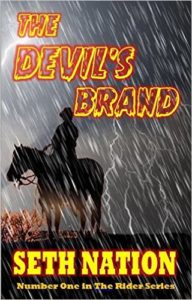

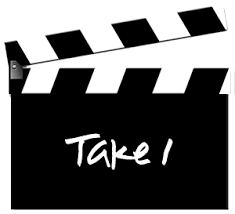

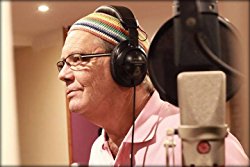 When it comes to notable names in the Western writing world, you will recognize a great many of them… But P.W. Burroughs stands at the top of the mountain with his giant hits “Bloodshed at Pecan’s Township” and “Bounty At Devil’s Pass.” These two Westerns have catapulted Burroughs out in front of thousands of readers. But does that mean you know Burroughs? No… let’s meet the man behind the Western myth.
When it comes to notable names in the Western writing world, you will recognize a great many of them… But P.W. Burroughs stands at the top of the mountain with his giant hits “Bloodshed at Pecan’s Township” and “Bounty At Devil’s Pass.” These two Westerns have catapulted Burroughs out in front of thousands of readers. But does that mean you know Burroughs? No… let’s meet the man behind the Western myth.![Bloodshed At Pecan's Township: A Texan Western by [Burroughs, P.W.]](https://images-na.ssl-images-amazon.com/images/I/41tp6VEX9CL._SY346_.jpg)
![Bounty At Devil's Pass, Texas: A Western Adventure by [Burroughs, P.W.]](https://images-na.ssl-images-amazon.com/images/I/51N20wwhs%2BL.jpg)
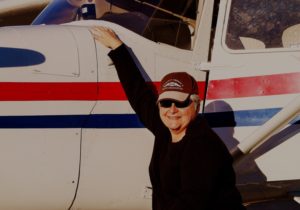 This interview is with one of the most interesting authors of 2016– Rebecca McLendon. Her new book “It Is Time” is an exciting look at the state of our world today. With fast-paced action, believable characters and a touch of the ‘divine’ it is highly advisable that you give this book a chance. You will love it… but before you do… Why don’t you take a look at this fascinating interview… It may help you make up your mind!
This interview is with one of the most interesting authors of 2016– Rebecca McLendon. Her new book “It Is Time” is an exciting look at the state of our world today. With fast-paced action, believable characters and a touch of the ‘divine’ it is highly advisable that you give this book a chance. You will love it… but before you do… Why don’t you take a look at this fascinating interview… It may help you make up your mind!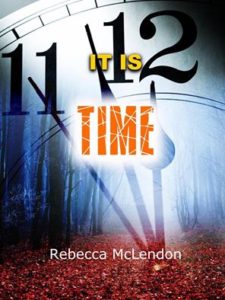
 Have you ever wanted to pick the brains of a top author? An author with a proven track record of success? An author who has managed to scale the mountain– and has been consistently at the top? This is your opportunity. This interview with Seth Nation will be revealing, entertaining, and will fire your desire to read his books. His first Western “The Devil’s Brand” has been a constant seller, with great reviews… and to prove how good it is… It is available as a #free download from Amazon. This giveaway will only last for a limited time… so…. read this interview, download the book and make your weekend a brighter one! You won’t regret it!
Have you ever wanted to pick the brains of a top author? An author with a proven track record of success? An author who has managed to scale the mountain– and has been consistently at the top? This is your opportunity. This interview with Seth Nation will be revealing, entertaining, and will fire your desire to read his books. His first Western “The Devil’s Brand” has been a constant seller, with great reviews… and to prove how good it is… It is available as a #free download from Amazon. This giveaway will only last for a limited time… so…. read this interview, download the book and make your weekend a brighter one! You won’t regret it!
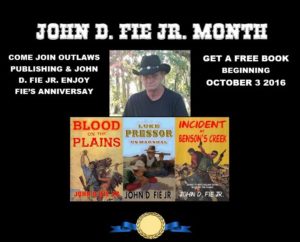
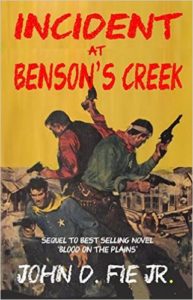
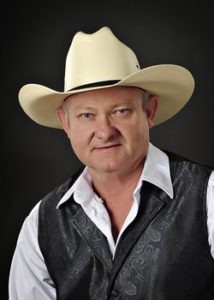 This interview is with one of the best Western writers of today. His name is Weldon Shaw, and his new book “Lone Wolf” has been a constant favorite with Western readers. “Lone Wolf” is the first book in a series– and what a series! Catch this new interview with Weldon– and get hooked! Hooked on a great story, by a great writer of today!
This interview is with one of the best Western writers of today. His name is Weldon Shaw, and his new book “Lone Wolf” has been a constant favorite with Western readers. “Lone Wolf” is the first book in a series– and what a series! Catch this new interview with Weldon– and get hooked! Hooked on a great story, by a great writer of today!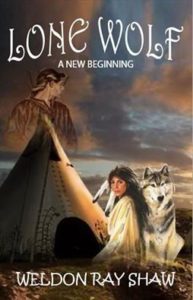





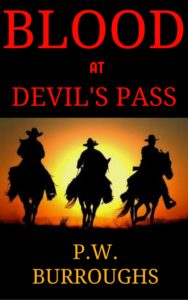
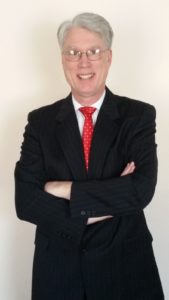 Bruce. G. Bennett is one of the most successful Western authors of 2016, so far. His Westerns have been racing up the bestseller charts. I want you to use your imagination for a few moments. Imagine for a few minutes that you are back in the Old West. A stagecoach has arrived in town, and you are helping the good folks unload their personal possessions from the coach. The door opens, and you find a man holding a book. That book is called “Preacher’s Corner: A Gabriel Torrent Western,” and the owner tells you this is the latest Western bestseller from Bruce G. Bennett. You are stuck in Cheyenne for the day. You sit down, and you start to read. Meet Bruce G. Bennett.
Bruce. G. Bennett is one of the most successful Western authors of 2016, so far. His Westerns have been racing up the bestseller charts. I want you to use your imagination for a few moments. Imagine for a few minutes that you are back in the Old West. A stagecoach has arrived in town, and you are helping the good folks unload their personal possessions from the coach. The door opens, and you find a man holding a book. That book is called “Preacher’s Corner: A Gabriel Torrent Western,” and the owner tells you this is the latest Western bestseller from Bruce G. Bennett. You are stuck in Cheyenne for the day. You sit down, and you start to read. Meet Bruce G. Bennett.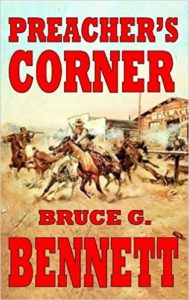
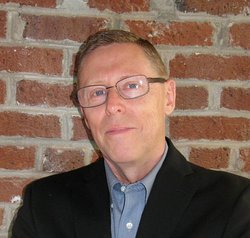 Have you been looking for a new Western series to cherish? How about checking out one of the most successful Western authors of today… G.P. Hutchinson. Success, if you can get it, is something to be cherished. G.P. Hutchinson has been at the top of the Western tree for some time now. His first book, “
Have you been looking for a new Western series to cherish? How about checking out one of the most successful Western authors of today… G.P. Hutchinson. Success, if you can get it, is something to be cherished. G.P. Hutchinson has been at the top of the Western tree for some time now. His first book, “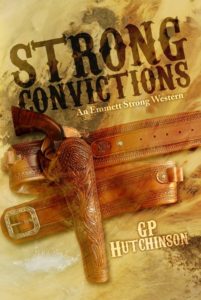
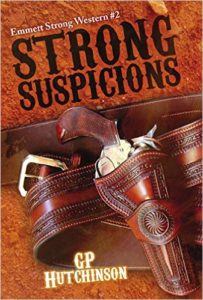
Recent Comments